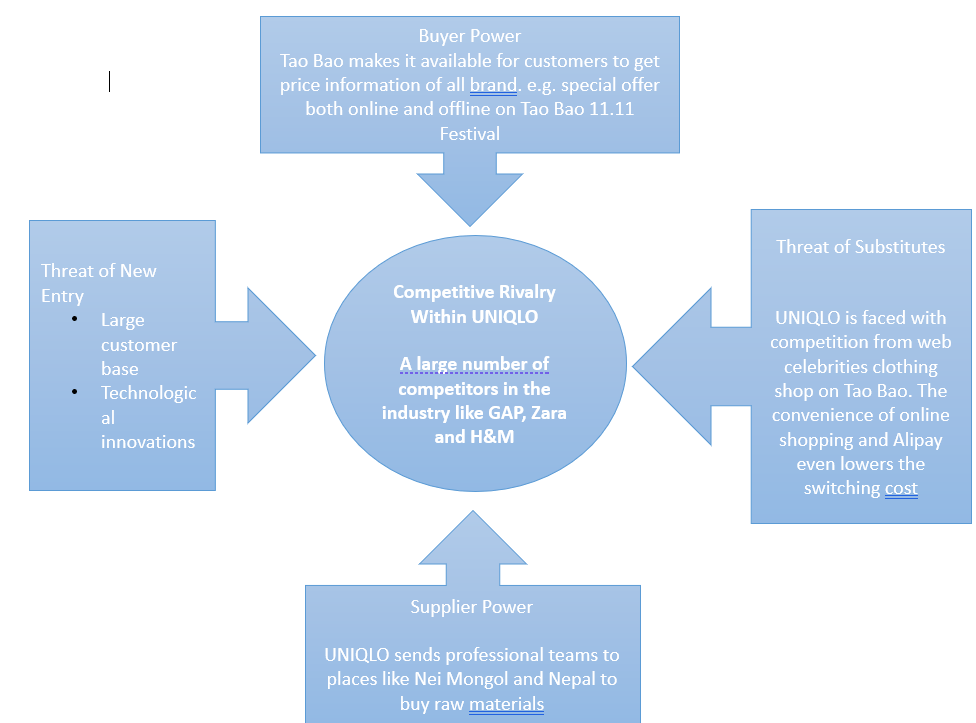Analisa Five Porter Uniqlo
UNIQLO
1. Threat of Rivalry
• Globalisation and intensified competition.
• Changing customer liberalisation on textile and clothing quota.
Threat of Entry
• Minimising the costs without sacrifing quality.
• Maintain mobility in adapting to new market demands.
Threat of Substitutes
• The blurring demarcation on the casual clothing family can be seen as an opportunity for substitutes.
• The company purchase the fabric and retain ownership of the raw materials, so making it hard for rivals to imitate substitutes for UNIQLO brands.
Threat of Suppliers
• The price and availability of commonly used fabrics such as cotton, synthetics and wools might fluctuate significantly due to its dependence on demand, weather, supply conditions, government regulations and economic condition.
Threat of Buyers
• Buyers are increasingly appearing to prefer above standard apparel with a much lower cost, making apparel less differentiated.
The uses of computer system software intended for the industry will be on making rough sketches, printing detailed designs and storing of information for easy retrieval. The customers orientation of UNIQLO was basically construed from its website in which customers can give feedbacks by email and discussion board.
UNIQLO changes from an ordinary retailed clothes in Japan to a global based company because of technology. The consumers prefer to shop online and it is more effective. So UNIQLO build a website for consumers to show them the collections they had.
Business Process Improvement (BPI) is a continual process that aims at attaining efficiency through continual improvement by reiterating the processes. UNIQLO has improved from offline to online through these years, they applied information system and technology to their company.
• UNIQLO can secure stable, high-volume supplies of top quality materials at a low cost.
• The inventory control department maintains the optimum level of store inventory, it does this by monitoring sales and stock on a weekly basis.

Oleh Nadira Elysia Putri & Riyanto Jayadi
